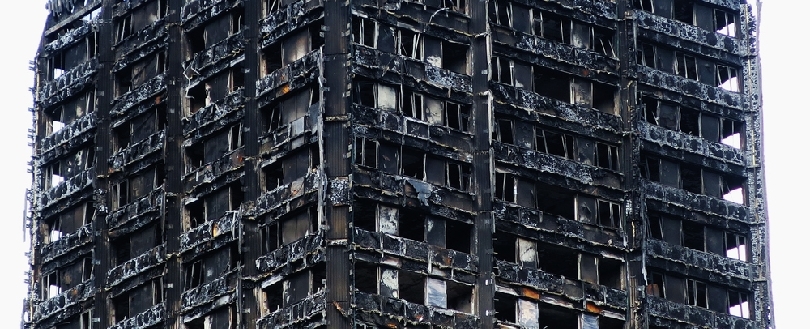
The Internal Market Bill may 'weaken Scotland's Grenfell protections'
Like it? Share it!
24 September 2020
The Internal Market Bill (IMB) seeks to remove and prevent trade barriers between the four UK nations. In doing so it aims to legislate that goods that are approved for use in one part of the Uk will be able to be used in other parts of the UK without restriction.
For example, it will mean 'Scotland will have to accept the flammable cladding which caused the 2017 Grenfell fire, even though it is currently illegal to use here.'
Peter Drummond, a senior member of the Royal Incorporation of Architects in Scotland (RIAS) said:
"It is simply inexplicable that the bill seeks to align the more robust Scottish regulations with the English system."Those powers are now to be removed. The lowest common denominator within the UK will apply. 'That is, on any fair reading, a spectacularly poor step backward. We should all be concerned."
Michael Russell, Scotland's Constitution Secretary, said "differences in building regulations between England and Scotland have existed for decades and do not present significant issues for those providing goods or services or to those delivering our built environment.
"The construction sector is familiar with such differences and these are well managed."
Whilst a UK Government spokesperson said“building regulations are a devolved matter, with each of the four nations responsible for developing and enforcing their own regulations.
“The Scottish Government and devolved administrations will continue to be able to set their own regulations in areas of devolved competence, including building regulations.”
The government has a lot on its plate with the resurging pandemic and Brexit fast approaching. Yet close attention is needed to the details of this bill to ensure that the work that has been done to prevent a tragedy like Grenfell Tower happening again.
Related news
-
Call for Publication of BS 8414 Test Data
11 February 2026
-
New FIA Environmental Guidance Legislative Overview Published
03 February 2026
Related resources
-
Euralarm-FAQs-re-Environmental-Product-Declarations-EPDs.pdf 1
27 November 2025
-
Memorandum of Association
01 September 2022
-
April 2021 - Six Employment Law Changes.pdf
09 April 2021
